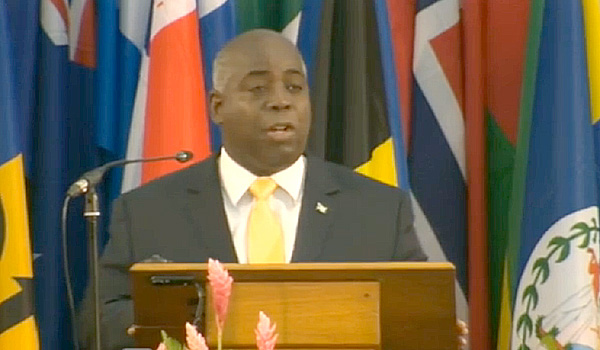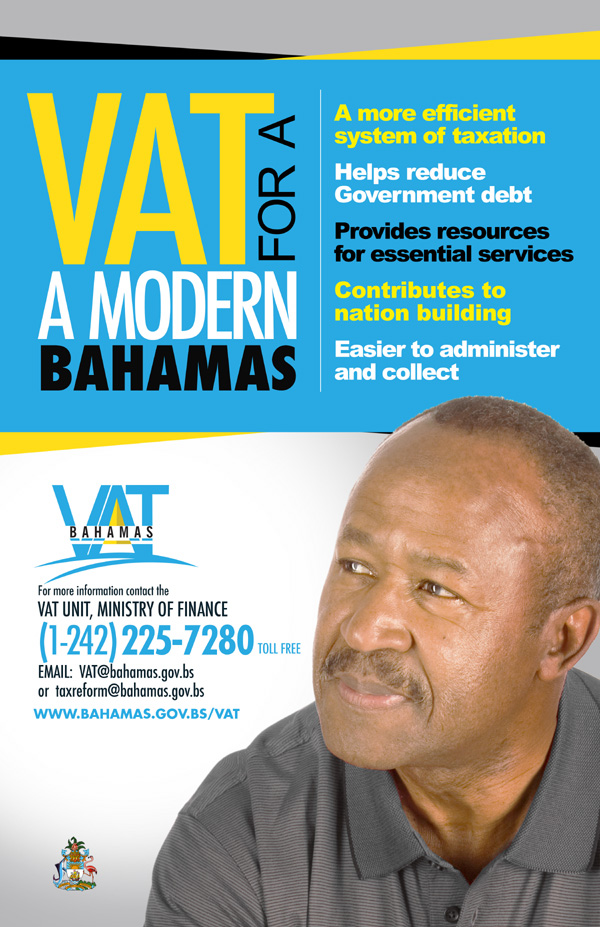DPM Davis Addresses United Nations Conference in Samoa…

APIA, Samoa — Deputy Prime Minister and Minister of Works, the Hon. Philip “Brave” Davis arrived in the Samoan Capital of Apia Sunday, a full day ahead of the start of the United Nation’s Third International Conference on Small Island Developing States (SIDS) which got underway Monday. The time differential here is seventeen hours.
Mr. Davis was accompanied by Minister for the Environment and Housing, the Hon. Kenred Dorsett.
Mr. Davis’s presence as the second most powerful Bahamas Government official, along with that of Minister Dorsett and a strong, expert, field from a number of government ministries, corporations and agencies and non-governmental organizations in the Commonwealth of The Bahamas, is expected to send a strong, clear, message to the global community and representatives of the numerous small island developing states represented here that The Government of The Bahamas is committed to, and very serious about, sustainable development.
The four-day SIDS Samoan Conference has been scheduled for September 1-4, 2014, at the Faleata Sports Complex in Apia, Independent State of Samoa, known formerly as Western Samoa.
Representatives from the BEST Commission, the Ministry for the Environment and Housing, Ministry of Foreign Affairs and the Ministry of Tourism’s Sustainable Development Unit help to comprise the Bahamian delegation. A representative from the country’s non-governmental organizations is also in attendance and part of the delegation.
Bahamian officials anticipate that Mr. Davis’s presence, and that of Mr. Dorsette, will add two strong voices to the campaign to reduce the harmful effects of climate change that many small-island nations – including The Bahamas – are experiencing.
“The Bahamas, situated as it is and with the topography that it enjoys, is most vulnerable to climate change and recognizing that, we have to demonstrate our commitment to the world — and in particular the industrialized world — of our seriousness to protect our physical environs not just for us today, but for our future generations of Bahamians,” Mr. Davis said.
“The gathering of information, the exchanging of ideas, and the development of new strategies that can come out of sessions such as these as a result of the participation of the world’s top technocrats and scientists, some of whom are gathered here, we believe, will go a long way in assisting and encouraging each of the participating countries – both small island developing states and the much larger industrialized nations — in implementing the necessary strategies needed to reduce many of the challenges that we face with respect to climate change – particularly within the small island developing states,” Mr. Davis added.
Monday’s First Plenary Session was dedicated to the Opening of the Conference and the Election of the President of the Conference in addition to a number of “housekeeping” matters. Delegates heard statements from the Conference President in addition to the Secretary-General of the United Nations, Mr. Ban Ki-moon, President of the General Assembly of the United Nations, the President of the Economic and Social Council, the Chair of the Alliance of Small Island States and the Secretary-General of the Conference (in that order) in addition to statements from major groups in accordance with the practice of the General Assembly.
Monday’s Second Plenary Meeting featured multi-stakeholder partnership dialogues on Sustainable Economic Development.
Tuesday’s Sessions are expected to focus on Climate Change and Disaster Risk Management and Social Development, Health and NCDs, and Youth and Gender; Wednesday, on Sustainable Energy and Oceans, Seas and Bio-diversity while Thursday’s final session will include focus on Water and Sanitation, Food Security and Waste Management before wrapping up with the Closing Ceremony.
Minister Dorsette said the issue of climate change is “very important” for small island development states especially since 2014 has been declared the International Year of Small Island Development States.
“Our attendance here at the SIDS Conference is critical, simply because we find that when we talk about climate change, the impacts for climate change are different for countries throughout the world. For SIDS, we have found that for a very long time, our voices were not given the prominence they ought to have gotten in our international and global meetings and so we were certainly pleased that this year, the United Nations determined that this year we would focus on issues relative to small-island development states and when you have regard for the adverse impacts of climate change – rises in sea levels, ocean acidification – for island nations which are really marine nations, when it comes to climate change it will not only affect our way of life, but lives in The Bahamas when one understands what potential impacts exist for sea level rising and so I think this conference is going to be important,” Mr. Dorsett added.











